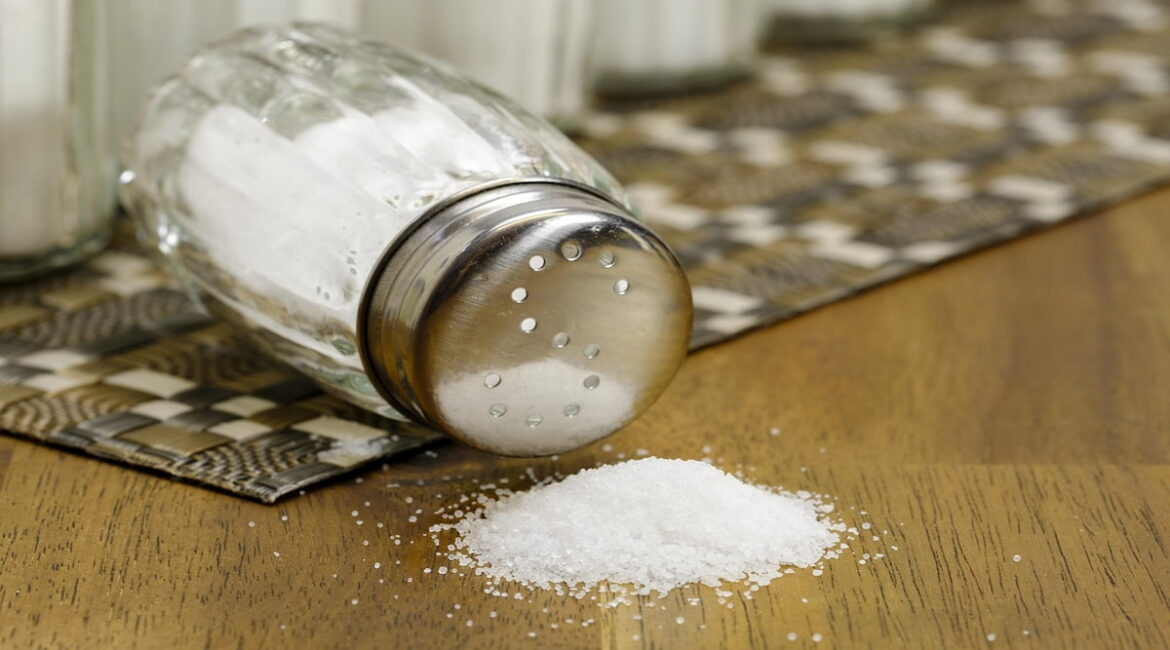Few nutrition and cardiovascular health topics spark as many divided opinions as the salt controversy. For decades, the prevailing guidance from major health organizations, such as the American Heart Association (AHA) and the FDA, has been clear: reduce sodium intake to lower the risk of high blood pressure and heart disease. However, in 2016, a study challenged this consensus, sparking a global debate.
A salty debate
Purportedly led by Tel Aviv University, the study suggested that individuals who consumed more salt than recommended had better blood pressure outcomes. This provocative claim spread rapidly online, even as experts raised alarms about misinformation. In this article, we’ll break down the facts, the fiction, and the science behind salt, blood pressure, and the politics of public health recommendations.
The origins of the salt controversy
Salt — or sodium chloride — is essential for human survival. It helps regulate blood volume, nerve transmission, and muscle function. However, in the modern diet, excess sodium is a leading contributor to hypertension, a silent killer that affects over 1.2 billion people worldwide.
Most health authorities recommend limiting sodium intake to less than 2,300 mg daily, ideally closer to 1,500 mg. However, in 2016, this consensus came under fire when a large-scale observational study by Dr. Andrew Mente, not Tel Aviv University, questioned whether low sodium intake might be harmful.
“Our findings show that only sodium consumption above 5 grams per day is associated with increased risk of cardiovascular disease,” — Dr. Andrew Mente, McMaster University, The Lancet, 2016
The study utilized data from over 130,000 individuals across 49 countries and identified a U-shaped curve, where both extraordinarily high and extremely low sodium intake were associated with adverse outcomes. The suggestion that moderate salt intake might be optimal contradicted long-held dietary guidelines.

What the 2016 study said
Published in The Lancet, the PURE (Prospective Urban Rural Epidemiology) study drew widespread attention. Its findings seemed to indicate that:
- People with moderate sodium intake (3-5g/day) had better cardiovascular outcomes
- Very high sodium intake (>5g/day) significantly increases cardiovascular risk
- Low sodium intake (<3g/day) was also linked to increased mortality and cardiovascular events
However, critics were quick to pounce. The study relied on spot urine samples, less reliable than 24-hour sodium measurements. Moreover, observational studies cannot prove causation, only correlation.
Despite the media storm, Tel Aviv University did not retract or lead the PURE study. The frequently cited connection to Tel Aviv appears to be a myth propagated online, possibly fueled by misinterpretations or misinformation campaigns.
The role of the American Heart Association
The American Heart Association (AHA) publicly criticized the study’s methodology and conclusions. Their position remains that most people consume too much sodium, leading to chronically elevated blood pressure and increased cardiovascular risk.
“The large body of science clearly shows how excessive amounts of sodium… can cause high blood pressure, which can lead to disease and even death.” – Dr. Mark Creager, AHA President (2016)
The AHA emphasized that most Americans consume around 3,400 mg of sodium daily, well above the recommended limit. They argue that suggesting a higher threshold would be irresponsible, especially given rising global rates of hypertension.
Debunking the Tel Aviv University claim
Numerous social media posts and websites referenced a 2016 Tel Aviv University study claiming salt improves blood pressure. According to fact-checkers at the Australian Associated Press (AAP), no such research exists.
“A search of Tel Aviv University’s database reveals no such study. Experts say the claim contradicts established scientific consensus.” – AAP Fact Check
This false attribution may have stemmed from confusion with the PURE study or intentional distortion to support contrarian health claims. Regardless, the spread of this misinformation highlights a growing issue in public discourse: scientific illiteracy and viral health myths.
What does the science say today?
The most credible current research on salt and blood pressure indicates:
- High sodium intake does raise blood pressure, especially in salt-sensitive individuals
- Reducing sodium intake can lower blood pressure, particularly in hypertensive populations
- The optimal sodium level may vary by genetics, lifestyle, and potassium intake
Notably, a 2021 Cochrane Review — the gold standard in evidence-based medicine — concluded that lowering sodium intake reduces blood pressure in both normotensive and hypertensive individuals, reinforcing decades of public health policy.
That said, context matters. Sodium is only one piece of a complex dietary puzzle. Factors such as:
- Potassium intake (found in fruits/vegetables)
- Overall diet quality (e.g., DASH or Mediterranean)
- Physical activity and weight management
are all critical in modulating blood pressure and heart health.

The psychology behind health misinformation
Why do misleading claims like the Tel Aviv University salt myth gain traction?
- Contrarian narratives are compelling: People are drawn to stories that challenge authority or flip conventional wisdom
- Confirmation bias: Individuals who dislike dietary restrictions may embrace evidence that supports indulgence
- Simplification: “Salt is good for you” is easier to digest than a nuanced discussion of intake ranges, genetics, and lifestyle
This is why critical thinking and media literacy are essential. The public must learn to question viral claims, check primary sources, and consider scientific consensus over sensational headlines.
Conclusion: Navigating nutritional truths
Salt remains a necessary yet potentially harmful ingredient in the modern diet. While the 2016 PURE study sparked valuable debate around sodium guidelines, its results were misrepresented in public discourse — mainly through the false attribution to Tel Aviv University.
As research evolves, so too should our understanding. However, until there is overwhelming evidence to overturn decades of cardiovascular data, the safest approach remains clear: Keep your salt intake in check, eat more whole foods, and question health claims that sound too good to be true.
Follow us on X, Facebook, or Pinterest

